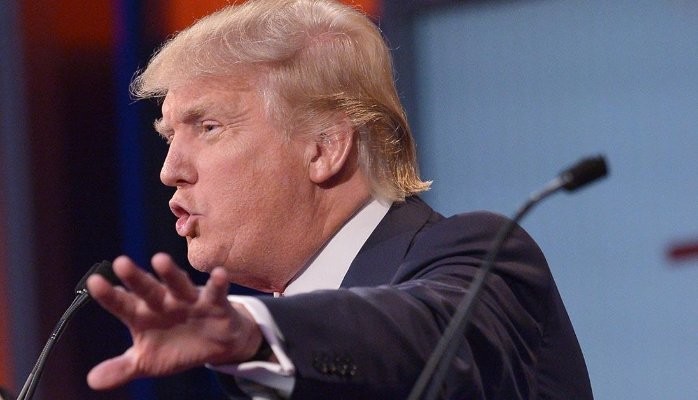Trump’s Plan to End Automatic Birthright Citizenship
Donald Trump’s proposed policies for the United States are making headlines. One of his most contentious ideas is to end automatic citizenship for children born in the U.S. The proposal is posted on Trump’s campaign website. It states that the change would be implemented through an executive order. This order would take effect on the first day of his administration if he wins. The move would impact children born in the U.S. This includes children with parents who are legally residing but not U.S. citizens or permanent residents, including those waiting for Green Card. The goal is to grant automatic citizenship only if at least one parent is a U.S. citizen or lawful permanent resident.
This executive order is seen as a new interpretation of the 14th Amendment, which currently grants citizenship to anyone born in the United States. Immigration experts, however, believe this interpretation could face legal challenges, arguing that it contradicts the Constitution’s historical stance on citizenship.
How Trump’s Policy on Green Card and Birthright Citizenship Affects the Indian-American Community
The proposed policy change is particularly concerning for the large community of Indian professionals and families living in the U.S. on H-1B visas. According to 2022 data from the U.S. Census, there are around 4.8 million Indian Americans, and roughly 1.6 million of them were born in the U.S. Many families in this group have waited years for permanent residency and have given birth to children who now possess U.S. citizenship under the 14th Amendment. If Trump’s executive order goes through, children born to Indian parents without citizenship or green card status will no longer be eligible for automatic U.S. citizenship.
This change could create significant instability for families who are already facing obstacles in obtaining permanent residency. The U.S. issues only a limited number of green cards each year. Specifically, the U.S. sets an annual cap of 140,000 for employment-based green cards and allows for additional unused family-sponsored green cards, but limits any single country to receiving no more than seven percent of the total green cards available. This limit has led to an enormous backlog for Indian applicants waiting for employment-based green cards.
The policy change on automatic citizenship would mean that children born to Indian parents—unless the parents hold citizenship or a green card—would not have the right to live permanently in the U.S. This presents a considerable problem for families caught in the green card backlog. Although many Indian professionals work in sophisticated jobs that support the American economy, they and their families face unclear prospects if the government does not grant their children citizenship privileges at birth.
Legal Challenges and the 14th Amendment’s Protection of Birthright Citizenship
The debate focuses on interpreting the 14th Amendment of the U.S. Constitution, which declares, “ Anyone born or naturalized in the United States, and under its jurisdiction, is considered a citizen of the United States and of the state where they live.” This clause has historically guaranteed birthright citizenship for children born on U.S. soil, regardless of their parents’ immigration status. Legal experts argue that the “subject to the jurisdiction thereof” clause includes nearly all individuals born in the U.S., with only a few exceptions.
The Supreme Court addressed this matter before in a landmark case involving Wong Kim Ark, a child born in San Francisco to Chinese nationals during a time when the U.S. largely excluded Chinese immigrants. The court strengthened the idea of birthright citizenship by deciding that Wong was entitled to citizenship because he was born in the United States. Many believe that Trump’s proposed change would not withstand legal scrutiny, as it directly contradicts the Supreme Court’s interpretation of the 14th Amendment.
Legal experts note that changing the amendment’s interpretation through an executive order could lead to legal battles. If the policy is implemented, people will likely ask courts to review cases. These cases involve children denied citizenship despite being born in the U.S. Such cases could set new precedents. They would also raise complex constitutional questions. Ultimately, the highest court would need to resolve these issues.
Impact on Families and the Green Card Backlog
The proposed policy could severely disrupt families, particularly those from countries like India. Indian nationals already face some of the longest waits in the green card backlog. Many Indians work in the U.S. on H-1B visas. They have families established in the country. However, they cannot gain green card status due to the annual cap and per-country limits. Current data shows that over a million Indians are waiting for green cards. These Indians are in skilled employment categories. The wait times can extend up to 134 years, assuming factors like aging out or death do not affect them.
Without automatic citizenship, children born to non-citizen parents could lose the stability they currently enjoy. When these children turn 21, they will face additional challenges, as they may lose their dependent visa status and must seek alternatives, such as student visas, to remain in the U.S. Until now, the birthright citizenship rule has offered some assurance for families waiting in line for permanent residency, allowing their children to secure a more certain future.
This proposed policy change highlights immigration issues more clearly. It exposes the complex realities faced by immigrant families. These families are striving for permanent residency and U.S. citizenship. Legal battles over the 14th Amendment could shape the future of birthright citizenship. These battles could also impact millions of immigrant families. Immigrant families contribute significantly to the nation’s workforce and society.





